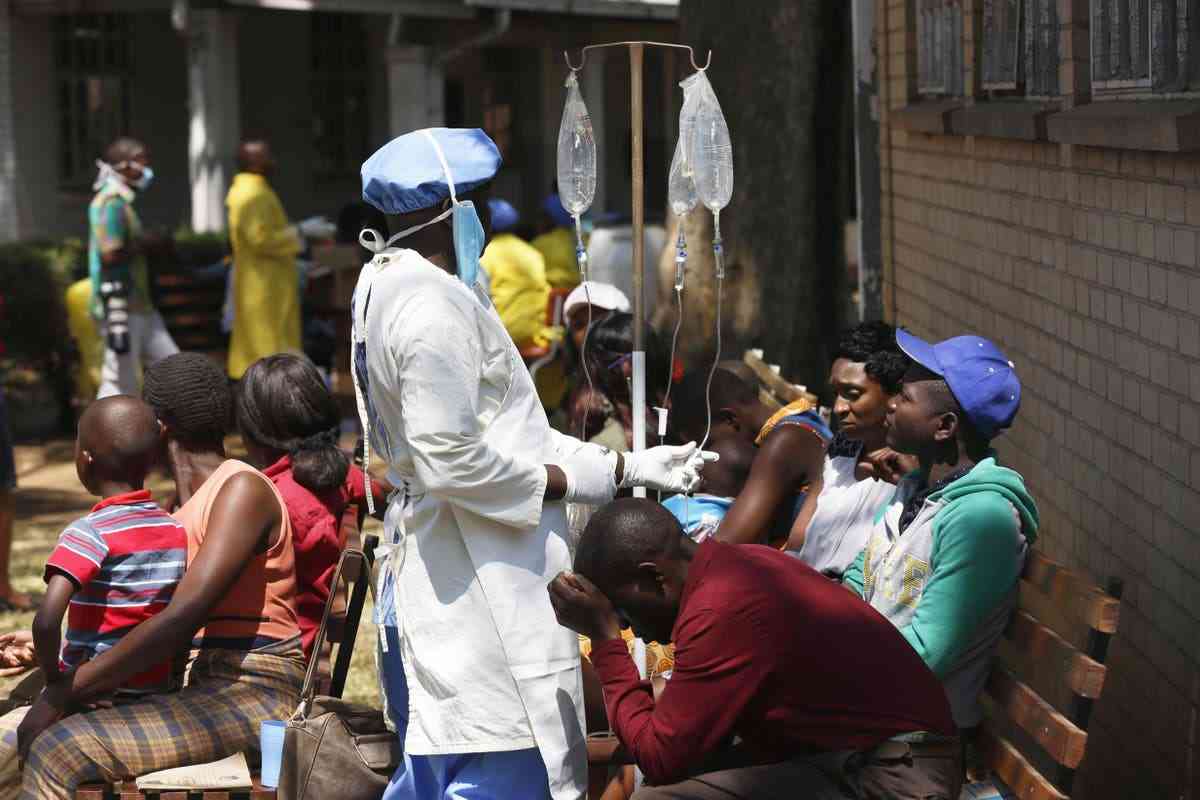
FOR 32-year-old Tinashe Chitiyo of Kuwadzana suburb, the outbreak of cholera is one of the worst experiences since time immemorial.
“There is an outbreak of cholera here in Kuwadzana and there are rumours of a few cases that have been confirmed,” said Chitiyo.
“We are not quite sure of the authenticity of reports, but we now live in fear of contracting the bacterial disease.
“The situation has reached a level where we now have people moving in the streets giving out warnings about the outbreak and what we should do to avoid the scourge.”
According to the latest cholera data from the Health ministry, 56 cases have been reported as of 16 May with suburbs such as Glen View, Budiriro, Dzivarasekwa, Waterfalls, Chipinge, Mutare Rural, Mudzi and Chimanimani identified as hotspots.
As of May 16, the country has recorded 1 017 suspected cholera cases, 288 confirmed cases, 940 recoveries, six confirmed deaths and 20 suspected deaths.
Mbare resident Chido Togarepi said the cholera situation was not looking good.
“There is an outbreak and if people are not careful they will fall victim to the epidemic,” she said.
- Harare residents threaten mass protests against Pomona deal
- Harare residents threaten mass protests against Pomona deal
- Plastic recyclers clamour for government funding
- Mining project to revolutionise rural communities
Keep Reading
Togarepi said due to the outbreak, most food outlets in Mbare were being shut down thereby affecting businesses.
“As women, we are finding it very difficult to conduct our businesses as we cannot access clean council water,” she said..
Harare Residents Trust director Precious Shumba said the major challenge facing Zimbabwe’s local authorities was the shortage of water and the inability and incapacity of the councils to treat sewer.
“Most of the local authorities are discharging their sewer directly into streams or rivers that feed into their main water bodies, which increases the cost of water treatment,” he said.
“With the huge cost of water treatment chemicals, sometimes local authorities provide poorly treated water.
“Compounding the situation is the fact that most underground water and sewerage pipes are rusty, obsolete and leaking, resulting in underground mixture of treated water and sewer.”
He said most residents, especially in Harare, preferred drinking water from community boreholes because they did not trust water from the council.
“Borehole water is largely contaminated underground and cholera is caused by consuming water with human waste,” Shumba said.
“Going forward, local authorities should prioritise the replacement of obsolete underground water and sewer pipes, which are largely blocked, rusty and leaking. More water needs to be pumped into people’s homes so that they follow good hygiene practices.”
Community Working Group on Health executive director Itai Rusike said: “The government, local authorities and partners in the health sector should ensure adequate surveillance to correctly forecast requirements at the beginning of each cholera season as a properly coordinated response increasing the impact of an intervention.”
“The government should learn from the cholera outbreak of 2008-2009 and declare outbreaks timeously in order for all systems to be alert including the media, residents and communities to avoid preventable deaths and illnesses from diseases such as cholera.”
He said it was the responsibility of the Ministry of Health and Child Care to provide leadership and stewardship in responding to the outbreak and coordinating efforts of partner organisations as provided for in the Public Health Act.
“There is need for effective communication systems to facilitate effective dissemination of information and meaningful engagement of communities in order to address sustainability of interventions,” he said.
Harare City Council spokesperson Innocent Ruwende said the council had all systems in place to fight the spread of the scourge.
“As council we have conducted medium to short term activities in order to improve the water quality and the amounts of water that are received in these affected areas,” he said.
“So, what we’ve done is we have sourced point-of- use water treatment tablets like aqua tabs and we are in the process of procuring waterguard in order to supply these areas so that people can clean water, especially drinking water.”
Ruwende said council has improved the water supply situation in affected areas and there have been marked improvements.
“We also are installing additional storage tanks whether there are boreholes with high yields so that more people can access the water, so these are some measures in order to improve the water supply,” he said.
“We also have been conducting awareness campaigns in the affected areas and the rest of Harare.
“In terms of cholera vaccination, the country has applied for vaccination through ICG, but we're still waiting to receive the cholera vaccine. No dates yet for the vaccine!”










